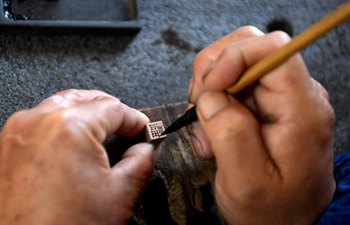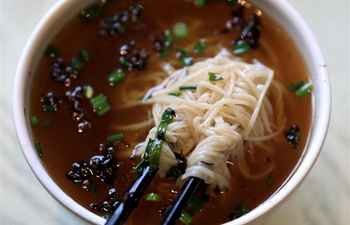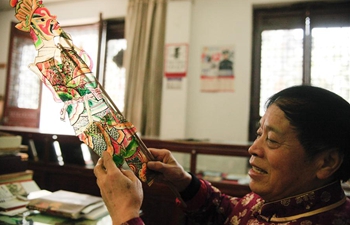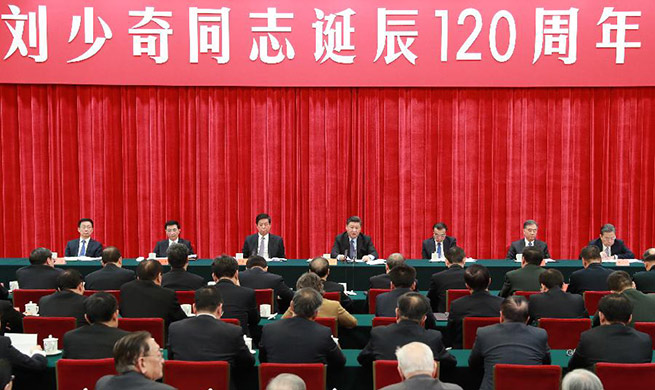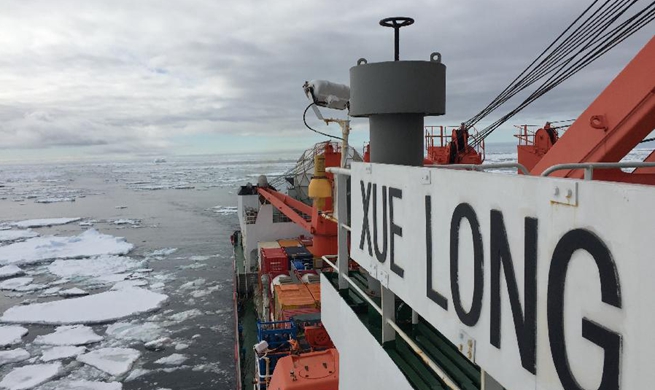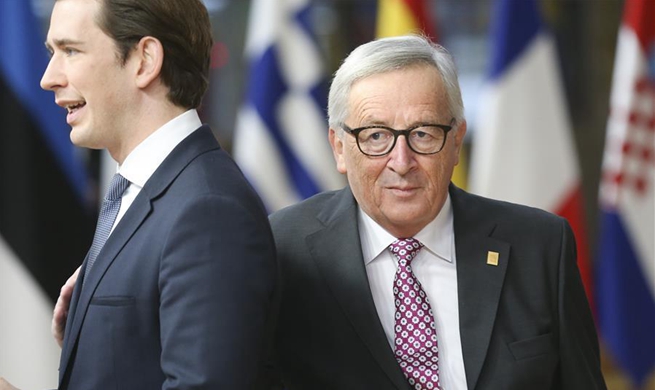ISTANBUL, Nov. 24 (Xinhua) -- The latest meeting in Ankara shows that Turkey and the European Union will continue to cooperate despite lingering disagreements in broad areas, as neither can afford to lose the other, analysts told Xinhua.
"Neither Turkey would break with the EU, nor the EU would give up on Turkey," said Murat Bilhan, vice chairman of the Istanbul-based Turkish Asian Center for Strategic Studies.
KEY DEAL ON REFUGEE
Turkish Foreign Minister Mevlut Cavusoglu met on Thursday with EU foreign policy chief Federica Mogherini and the bloc's commissioner for enlargement Johannes Hahn.
There was an exchange of criticisms as well as words of mutual commitment to cooperation at the joint press meeting in Ankara.
The statements made at the meeting represent a typical example of how Ankara and Brussels will continue to work together despite divergences considering mutual interests, remarked Bilhan, a former diplomat.
For the EU, Turkey is its sixth biggest trading partner, while the union is not only Turkey's biggest trading partner, but also its biggest direct foreign investor.
Mogherini and Hahn were in Ankara to restart the long-stalled political dialogue with Turkey, a candidate struggling to become a full EU member since late 1980s.
They both underlined Turkey's importance as a partner for the EU, while criticizing Ankara for deficiencies in democracy and the rule of law.
In response, Cavusoglu criticized the EU for not fully cooperating with Ankara against organizations such as the Kurdistan Workers' Party (PKK) and the Gulen movement, which Ankara has blacklisted as terror groups.
Fethullah Gulen, leader of the Gulen movement, is a U.S.-based Turkish cleric whom Turkey accuses of masterminding a coup attempt in 2016, while the PKK has been fighting against the Turkish government for decades.
Cavusoglu also called on the EU to stop placing politically motivated barriers before Turkey's full membership in the 28-nation bloc, as he underlined Ankara's will to join it.
"As usual, the EU's attitude consists of neither allowing Turkey to get away from the EU nor letting it into the bloc," said Hasan Koni, a professor of public international law at Istanbul Kultur University.
"The EU would particularly not want Turkey to get away from it because of the refugee issue," he added.
Under a deal finalized with Brussels in 2016, Ankara agreed to block the inflow of refugees into Europe via its territory in return for EU's financial help for Syrians being sheltered in Turkey as well as visa liberalization for Turks and the revival of Turkey's accession process.
The deal came after nearly 1 million Syrian refugees made it illegally into the EU via Turkey in 2015, a development which led to public protests in many EU countries.
Turkey currently hosts around 4.5 million refugees, and more than 3.5 million of them are Syrians.
TURKEY'S ROLE AS REGIONAL PLAYER
The EU is concerned that any flare-up in clashes in Syria's Idlib Province could push another flock of refugees into Turkey first, then toward Europe.
EU foreign policy chief Mogherini praised Ankara's stance on Idlib, while promising support for the refugee issue.
Thanks to Turkey's efforts toward a political settlement, Russia, a supporter of the Syrian government, agreed in September to give up launching a military offensive to remove the Islamist rebels in Idlib.
Mogherini described as important the cooperation between Brussels and Ankara regarding Syria, Iraq, Iran, the peace process in the Middle East and the Gulf region.
"The EU would seek to get Ankara to deal with the hard work in the Middle East and the refugee issue," stated Koni.
"The EU wants to use Turkey in the Middle East," echoed Bilhan, who also feels certain that the bloc would like to have Ankara anchored without admitting it as a full member.
Ankara's accession talks have long been stalled amid increasing EU criticism over what it calls deterioration in democratic standards in Turkey. In response, Turkey says it has been unfairly treated in the process by the EU as a Muslim country.
Ankara officially began accession negotiations with the EU in 2005.
Ties with Brussels only began to show signs of relative improvement in early 2018, but the EU does not seem willing to open new chapters in Ankara's accession talks.
The EU should, for its own interests, open the doors it has specially locked, said Cavusoglu, who stressed that Turkey-EU ties are strategically important.
Both analysts feel that the EU cannot afford to alienate Turkey, as Ankara would then look for partners outside the bloc.
"Turkey has never been without alternatives in any period of time," Bilhan said, noting Turkey is a regional power at the crossroads of Asia, Europe, the Middle East and the Caucasus.
"Strategically, the EU would like to have Turkey on its side as the Middle East is being restructured, because Ankara has sway over Islamist groups," argued Koni.
Although the political dialogue between Ankara and Brussels has resumed, no smooth progress is expected.
Turkish President Recep Tayyip Erdogan did not receive Mogherini and Hahn despite their request for an appointment, the Cumhuriyet daily said Friday.
Leading EU countries such as Germany and France previously made clear that Turkey would not be granted a full membership status.

